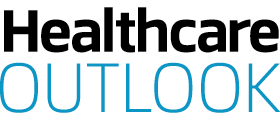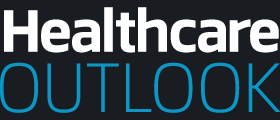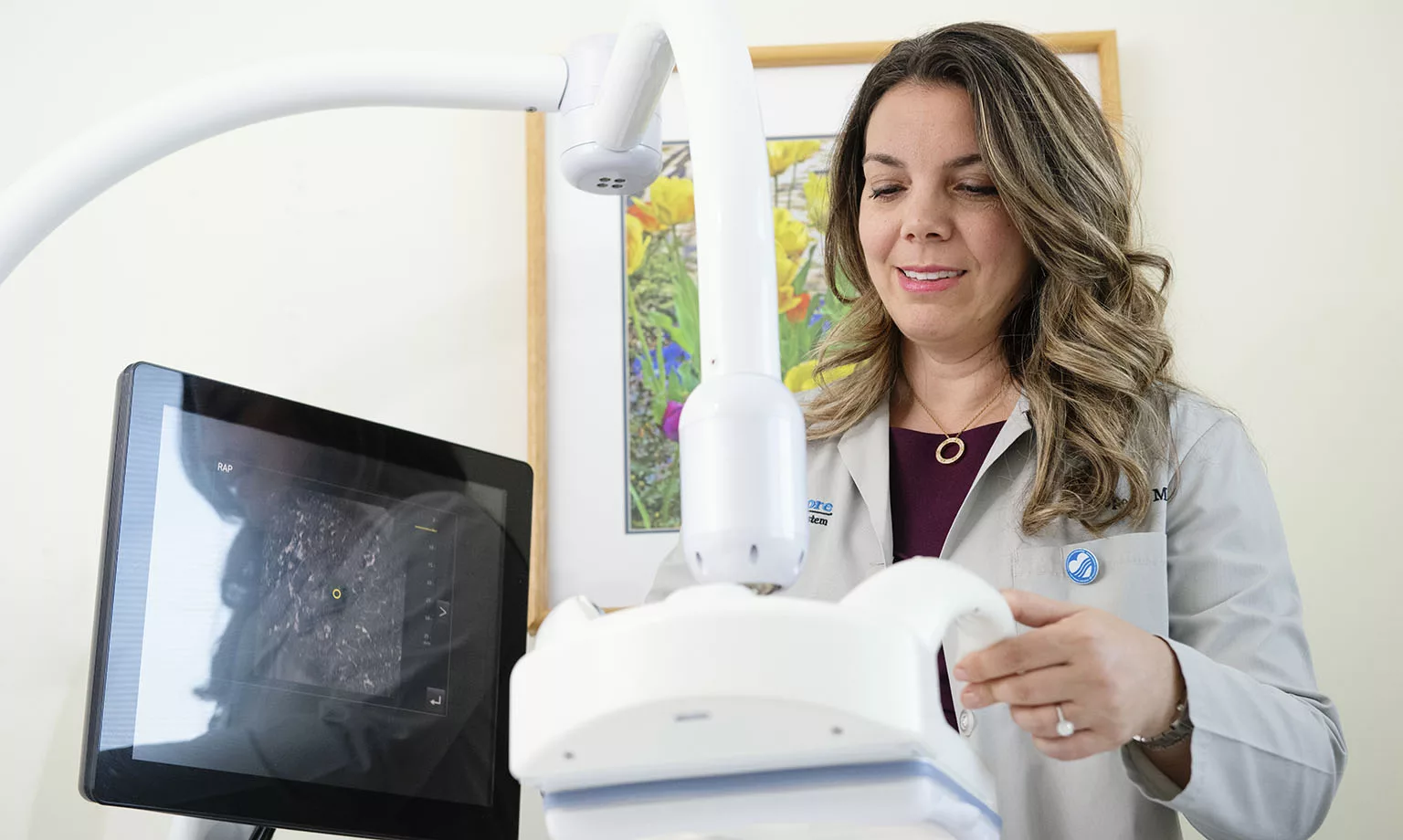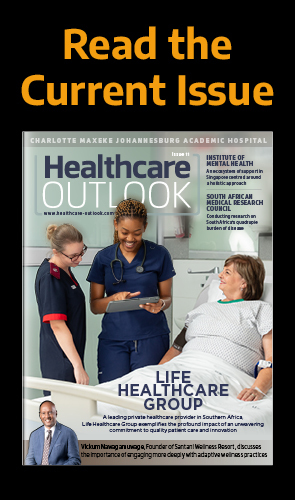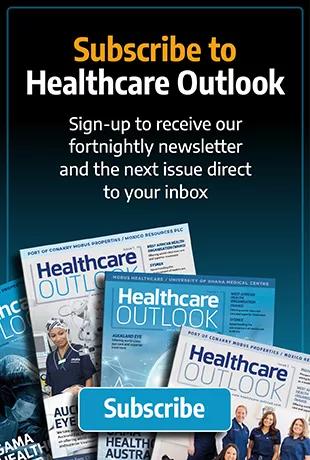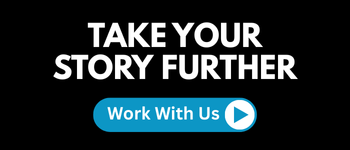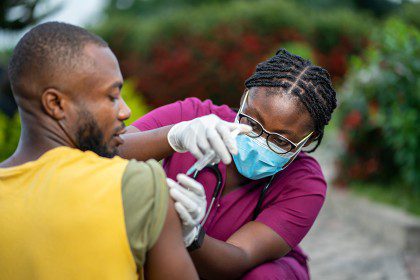Deeply linked to its communities, Endeavor Health is committed to setting a new standard for healthcare, one that redefines the expectations of community-connected care. We speak to Justin Brueck, System Vice President of Innovation and Research, about blending cutting-edge technologies and precision medicine with compassionate and personalized care to establish a new standard and expectation for 21st century medicine.
A UNITED ENDEAVOR
Endeavor Health (Endeavor) is an integrated, community-based health system serving more than 1.3 million Illinois residents across a service area of 4.2 million people.
Operating across nine regional hospitals, more than 300 care locations, and supported by over 27,000 team members, its network is extensive.
Today, its mission is to help everyone in its communities be their best by delivering pioneering, world-class care and a seamless, personal patient experience.
“I believe that the only way for us to care for patients better is to know them better,” opens Justin Brueck, System Vice President of Innovation and Research at Endeavor.
Having joined the organization in 2010 as an administrative fellow, Brueck has held leadership roles across radiology, laboratory medicine, and hospital operations. Today, he oversees the Mark R. Neaman Center for Personalized Medicine (one of the largest genomics-based programs in the country), the newly established Davis Family Center for Preventive Genomics, the Grainger Center for Simulation and Innovation, as well as the Endeavor Health Research Institute.
Passionate about transforming health through new technologies and approaches to care delivery, Brueck seeks to evolve the current practice of medicine from one that manages reactive, ‘sick care’ to a new paradigm that embraces proactive and personalized ‘health care’.
“This is going to require the industry to radically shift the way we think about care delivery,” he remarks.
“Given that the majority of care still happens locally, it also means we have to start with redefining the role and expectation of health systems. Endeavor has a unique opportunity to do just that by reimagining the way we engage with patients and viewing them in a way that new entrants see them – as ‘consumers of health’.
“This means understanding how they now choose to receive services across other industries – whether banking, flying, or ordering takeout – and considering how those innovations can be tailored to create a seamless, world-class experience within healthcare.”

KEY INNOVATION FOCUS AREAS
The growing influx of entrants and technologies is providing Brueck with many options to consider as he and his teams work to design a more consumer-centric approach to care at Endeavor.
For example, digital health is now about care-on-demand – how, where, and when patients want to receive care on their terms. This means changing the current practice of ‘the doctor will see you now’ to a repositioned experience expectation where ‘the patient will see you now’.
The wearable technology movement is further enabling a digital-first approach to care by allowing clinicians to remotely monitor and diagnose illnesses that might not be as readily identified through current, often time-limited, care interactions.
Additionally, through new omnichannel technologies that allow for the collection of patient-reported outcomes in real time, clinicians can now gain direct insight into patients’ own perspectives on their health status, treatment experience, and overall quality of life.
Endeavor has recently co-developed Motiv, a healthcare technology company that brings virtual cardiac recovery to patients’ homes rather than being exclusively offered at hospitals or outpatient centers.
More from Healthcare Outlook
“When you think about patients who don’t have the ability to take time off work or travel to our sites – single parents, or those caring for others, for example – Motiv allows them to recover when it’s convenient for them,” Brueck affirms.

TECHNOLOGY: A NEW ENABLER TO CARE
“Having recently ranked amongst the top 25 providers in the nation for artificial intelligence (AI) readiness, Endeavor’s innovation approach is also heavily focused on leveraging this game-changing technology.”
Brueck shares that AI is already helping Endeavor clinicians know and care for their patients better. Through AI, significant amounts of healthcare data are able to be instantaneously analyzed to create personalized insights. These insights lead to a better understanding of how patients may respond to a given therapy or treatment regimen. It also provides a window into underlying variables that may be impacting outcomes.
As a practical example, Brueck notes that, typically, when a patient presents to the emergency department (ED), clinicians assess what’s in front of them.
“They’re not able to perform a robust chart review, so they might not immediately understand how underlying social determinants of health, such as homelessness or abuse, may be contributing to the visit,” he comments.
However, Endeavor’s innovative new AI capabilities can identify risk factors that may be buried in the electronic medical record (EMR) in real-time, assigning the patient a ‘score’ that social workers can then use to identify those who require prioritization for further intervention.
Given the success of these early use cases, the health system plans to leverage its existing data assets to further expand and train AI learning platforms, which it intends to seamlessly integrate as part of clinical decision support at the point of care.
Meanwhile, with the demands on healthcare growing and the available pool of workers shrinking, innovating for the workforce is more critical than ever. For Endeavor, workforce empowerment means supporting team members in practicing at the top of their licenses, implementing technologies that allow them to focus more directly on patient care, and exploring new ways to engage with the next generation of healthcare workers.
For example, Endeavor is exploring a new approach which enables a team of dedicated and experienced nurses to work closely with patients’ bedside nurses from a remote location, leveraging computer vision and a multi-sensor network. With this model, they will help monitor vital signs and provide reminders, education, and support around the clock. Not only does this new approach benefit bedside nurses, but it is also designed to provide patients with extra support, helping enhance the overall care experience.
Further, to help enable staff to spend more quality time with patients and focus on their clinical work, Endeavor has recently rolled out Moxi, an autonomous robot with the ability to navigate wards, push elevator buttons, and deliver supplies. All of these technologies are grounded in a philosophy that Brueck believes helps bring joy back to the bedside.
While AI, wearables, and robots are bringing transformational change to how care is delivered at Endeavor, Brueck believes one of the most innovative technologies that is finally ready for primetime is a unique capability Endeavor has been incubating for the past two decades: genomics.
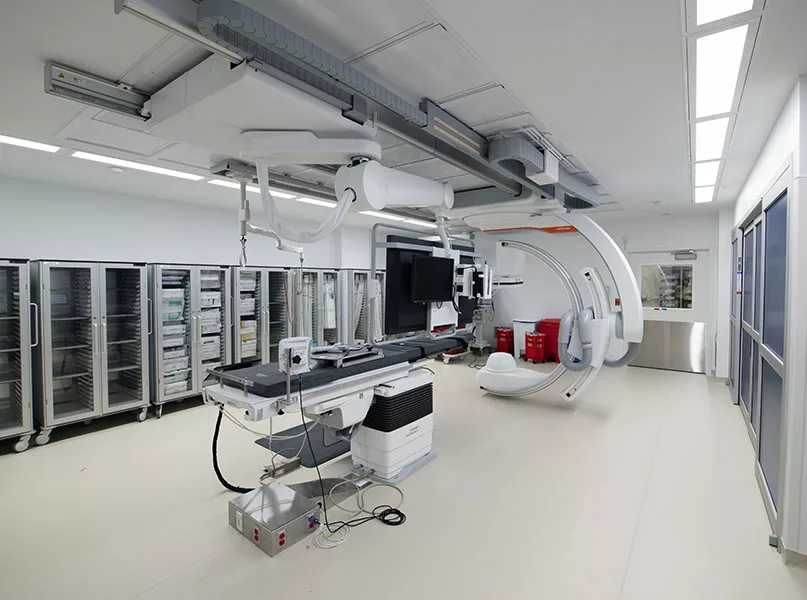
THE NEXT GENERATION OF MEDICINE
Today, Endeavor boasts one of the largest primary care-based genomics programs in the country, where over 250,000 patients have completed a Genetic and Wellness Assessment that informed genetic testing for over 50,000 patients. While Brueck notes that this is an impressive milestone, he believes that the system is just scratching the surface when it comes to unlocking the potential of genomics in personalizing care.
As such, it recently announced the Davis Family Center for Preventive Genomics, which will utilize advanced genome testing to inform early diagnosis, prevention strategies, and personalized treatment options for patients.
“The idea behind preventive genomics is to move away from ‘trial and error’ medicine toward a world in which we create tailored screening and treatment plans. Through knowing you better – at the level of your DNA – we can deliver an elevated approach that ensures we provide you with the right care, at the right time – the first time,” Brueck explains.
Other innovative interventions are being evaluated at the center such as multi-cancer early detection (MCED) tests, through which a liquid biopsy can be used to identify cancer potentially before standard radiology screening would be able to. These types of innovations have the ability to meet patients where they are and provide new ways to identify diseases that could previously go undetected.
More from Healthcare Outlook
In the near future, Brueck believes every patient should have access to their genomic information. But having this is just the beginning as clinicians will need new tools to understand how to convert genomic information into actionable insights.
To begin bridging that gap, Endeavor recently launched a new partnership with GenomicMD. Through this collaboration, Endeavor’s Research Institute developed and validated a next-generation test called a polygenic risk score (PRS) which provides a personalized lifetime risk assessment for clinicians treating complex genetic conditions.
“We’re one of only a handful of health systems in the US, and even internationally, that is incorporating PRS as part of care today,” Brueck enthuses.
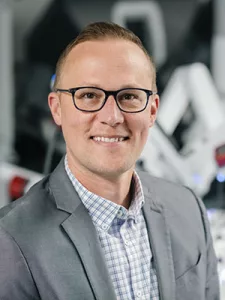
“The idea behind preventive genomics is to move away from ‘trial and error’ medicine toward a world in which we create tailored screening and treatment plans”
Justin Brueck, System Vice President of Innovation and Research, Endeavor Health
UNLOCKING ADVANCED, LOCAL HEALTHCARE
Passionate about providing accessible healthcare to local communities, Brueck cites the importance of innovation and research while noting how both are often intrinsically linked to the immediate population.
“When medical research is carried out locally and embedded in communities, it thrives. At Endeavor, we have access to a broad patient cohort across diverse social groups and demographics in our community, allowing us a comprehensive and representative perspective,” he excites.
For example, The Johns Hopkins University School of Medicine in Baltimore was running a convalescent plasma trial during the COVID-19 pandemic. Because of its trusted connection to the community, Endeavor subsequently became the second-highest enrolling site in the landmark trial, providing hope and options for patients when there were no other approved treatments.
The importance of local health data for research purposes has also been recently highlighted by the Food and Drug Administration (FDA), which is looking to integrate more diversity into its clinical trials.
As part of a new commitment to research and innovation, Endeavor has established a Scientific Advisory Group which uses health equity criteria to evaluate how its research leads to more inclusive participation. Through this work, the system has recently expanded many of its trials to Swedish Hospital – its safety net site in Chicago.
“In my view, we have an obligation and an opportunity at Endeavor to make the latest in medical breakthroughs and treatments accessible in patients’ own backyards. You shouldn’t have to drive past any of our hospitals to access those services.”
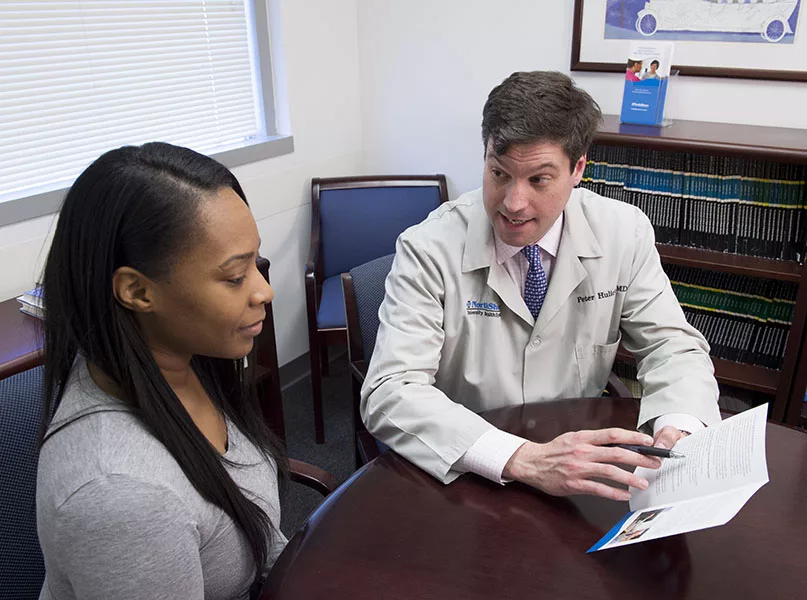
EVOLUTION ON THE HORIZON
Going forward, Brueck is focused on leveraging new technologies and innovations to tailor care and personalize it in a way that is differentiated – whether that be through genomics, data insights, or even self-reported patient outcomes.
“Personalization and hyper-personalization are going to be critical to our success as we seek to leverage the right digital tools, tailored outreach, and technologies to achieve our goal to be a model for what vibrant, community-connected health systems can be,” Brueck comments.
“Meeting the needs of our future workforce is equally of critical importance. As it stands, there are not enough people available to meet the anticipated demands of our patients and communities in the future,” he shares.
Endeavor seeks to become smarter, more efficient, and leverage automation to help streamline its processes and support its team members.
Further on the horizon, Brueck is excited to see how the next generation of genomics and AI enables the concept of ‘digital twins’ in which clinicians will be able to leverage simulated digital versions of patients to understand and explain how they are likely to respond to a given treatment.
“It’s a very exciting space when you consider the possibilities of truly tailoring care based on your genetic makeup, phenotypes, and behaviors,” he suggests.
Currently, digital twinning is used to test medications and treatments for side effects and reactions, but the possibilities are endless.
“The digital age is here and now. We need to be preparing and educating ourselves – clinicians, patients, and communities – for the future of reimagined care delivery. Thankfully, in healthcare, it’s not just about the latest technology. There is a life at the end of every interaction that we have the ability to improve. It’s a really rewarding and exciting time to be in the space,” he concludes.
